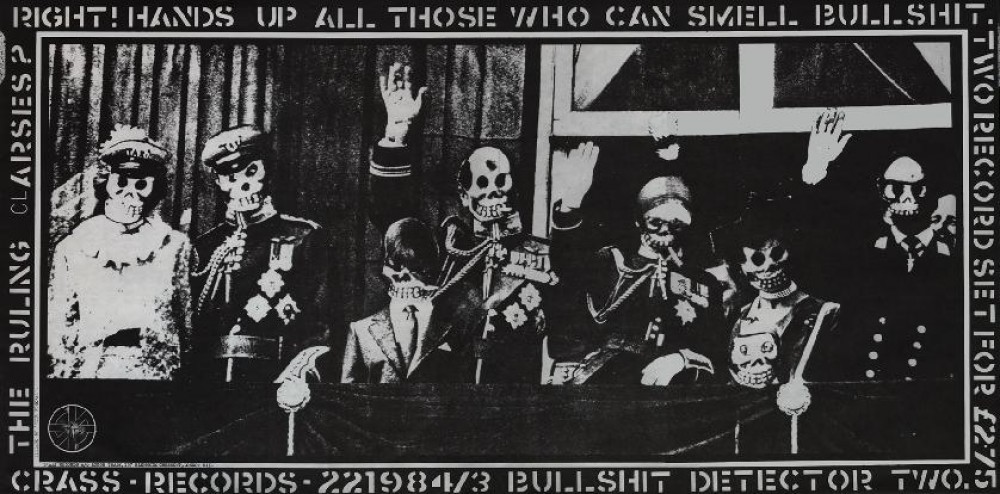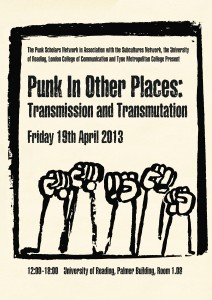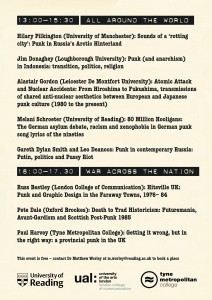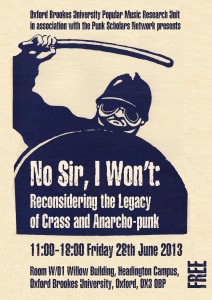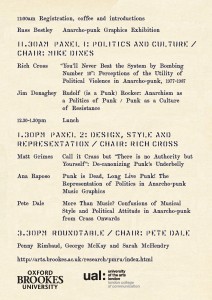A couple of weeks ago I attended the third Punk Scholars Network event organised and hosted by Pete Dale and the Oxford Brookes University Popular Music Research Unit. The title of the symposium was “No Sir, I Won’t”: Reconsidering The Legacy of Crass and Anarcho-Punk. The day started off with a pleasant taxi ride from the station with Pete, Penny Rimbaud, drummer and one of the founder members of Crass, and Sarah McHendry, musician and activist, member of Mwstard and former drummer of Curse of Eve, Baba Yaga and Witchknot. On arrival me, Penny and Sarah went off for a coffee at which point I started testing the ground with Penny about the paper I was to deliver that day on Crass and the documentary “There Is No Authority But Yourself” directed by controversial Dutch filmmaker Alexander Oey. My reason for broaching the paper with Penny, in advance of my presentation was because I felt quite nervous discussing somebody in the first person whilst they were there in the conference audience. It seemed from our discussions that my interpretation of the documentary was along the same lines as what Penny and Alexander were trying to convey through the documentary. Whilst this was reassuring I was yet to see how the audience would respond to my reading and the line of questioning I might get from Penny et al after I had presented.
Before the papers were delivered there was an excellent exhibition of anarcho-punk graphics from Russ Bestley of the University of The Arts London who pulled together some great examples and created a set of really powerful photomontage posters. To accompany the exhibition he also designed and printed a beautifully crafted limited edition ‘zine’ that was full of some great anarcho-punk graphics and an interesting historical perspective of the anarcho-punk movement/ scene in the UK in the late 1970’s to the mid 1980’s. You can see his excellent work here:PSN Oxford Booklet Layout PDF LR and here and throughout this blog post:
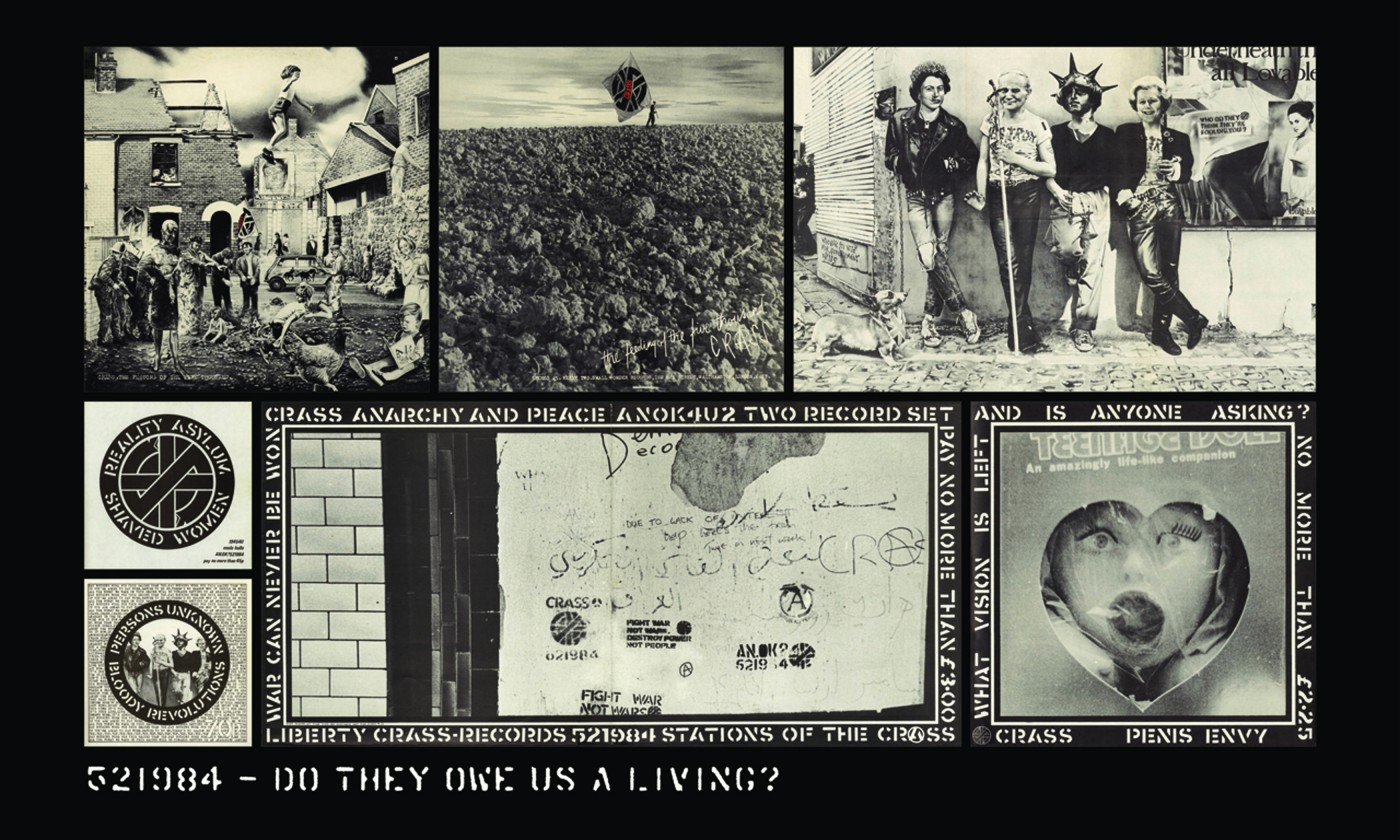
The first presenter of the day was Rich Cross whose paper was focused around discussions on the anarcho-punk/ peace punks’ relationship with the 60’s hippy counter culture and the development of political violence in the anarcho-punk movement. In his discussions he proposed that the singular fixed view of pacifism being integral to the early anarcho-punk movement misrepresented a more complex and contradictory reality, within the movement, where adherence to pure pacifism had become a contested principle. He drew on examples of the movements involvement with varying political groups including anti- fascist, animal liberation, anti- capitalist, Class War, Stop The City etc and how that involvement challenged the original pacifism of anarcho-punk and saw some anarcho-punk militants adopt newly confrontational approaches.
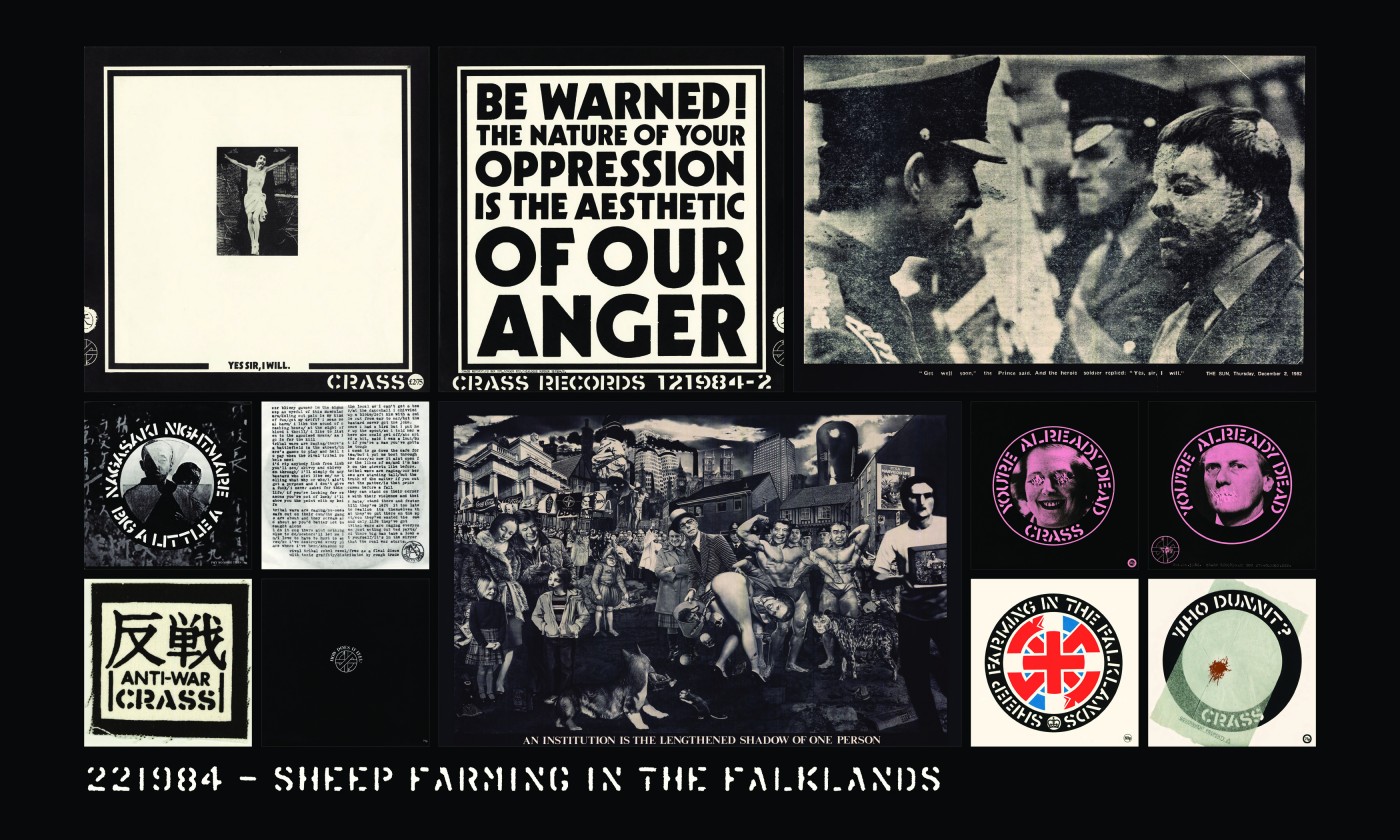
Second up was a stimulating paper from Jim Donaghey who discussed anarchism as a politics of punk and punk as a culture of resistance. He proposed that there is a supposed gulf between ‘lifestyle’ and ‘ social’ anarchism where anarcho syndicalist’s ‘workerist’ interpretations of anarchism are somewhat in conflict with the social/ cultural interpretations of punk. In his paper he mapped out the anarcho-syndicalist principles of Rudolf Rocker onto DIY punk where it could be argued that the ‘workerist’ means of production are in the hands of the producers within DIY punk. In doing so he argued that a major foundation for successful struggle is a culture of resistance in which DIY punk contributes to in the contemporary anarchist milieu, as DIY punk bridges both political/personal and cultural/material.
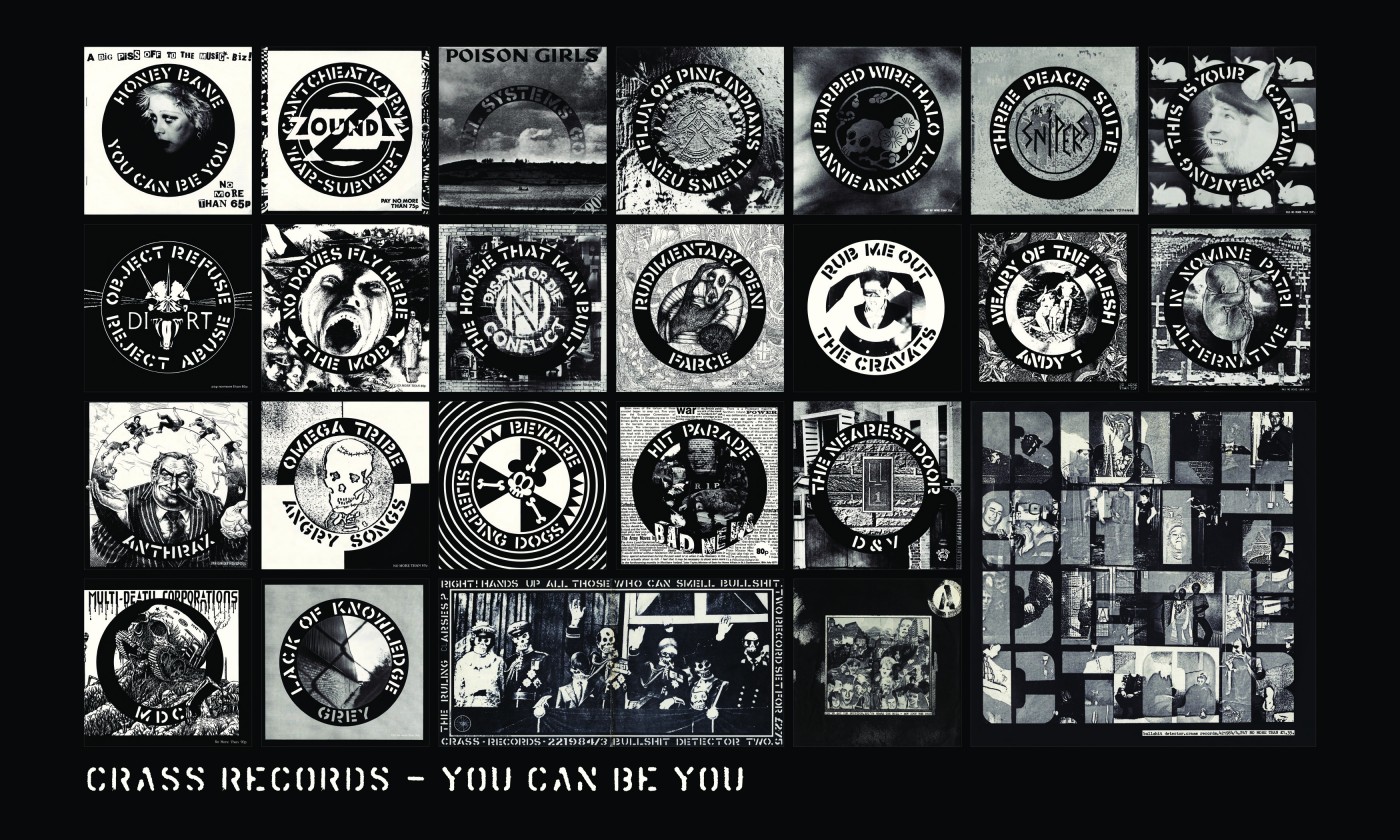
After lunch it was my contribution where I discussed how music documentaries are used as a way of presenting and documenting popular music history, specifically punk for the screen. I argued that particular stylistic devices and tropes used in popular music documentaries engage in canonical processes that contribute to the formation of a punk canon. Alexander Oey’s documentary about Crass “There Is No Authority But Yourself” steers away from these stylistic devices and rather than presenting a ‘history’ of Crass presents us with a different insight. In documenting Crass, Oey becomes more interested in the contemporary lives of some of the band members and how the ideologies of the band are still, for some, core to their lives and lifestyle. This raises the issue about an investigation and documenting of Crass being a vehicle for a broad range of ideologies that members of the band had before the band formed, and continue to live by today, rather than an intention to document history per se. The full paper is available here:
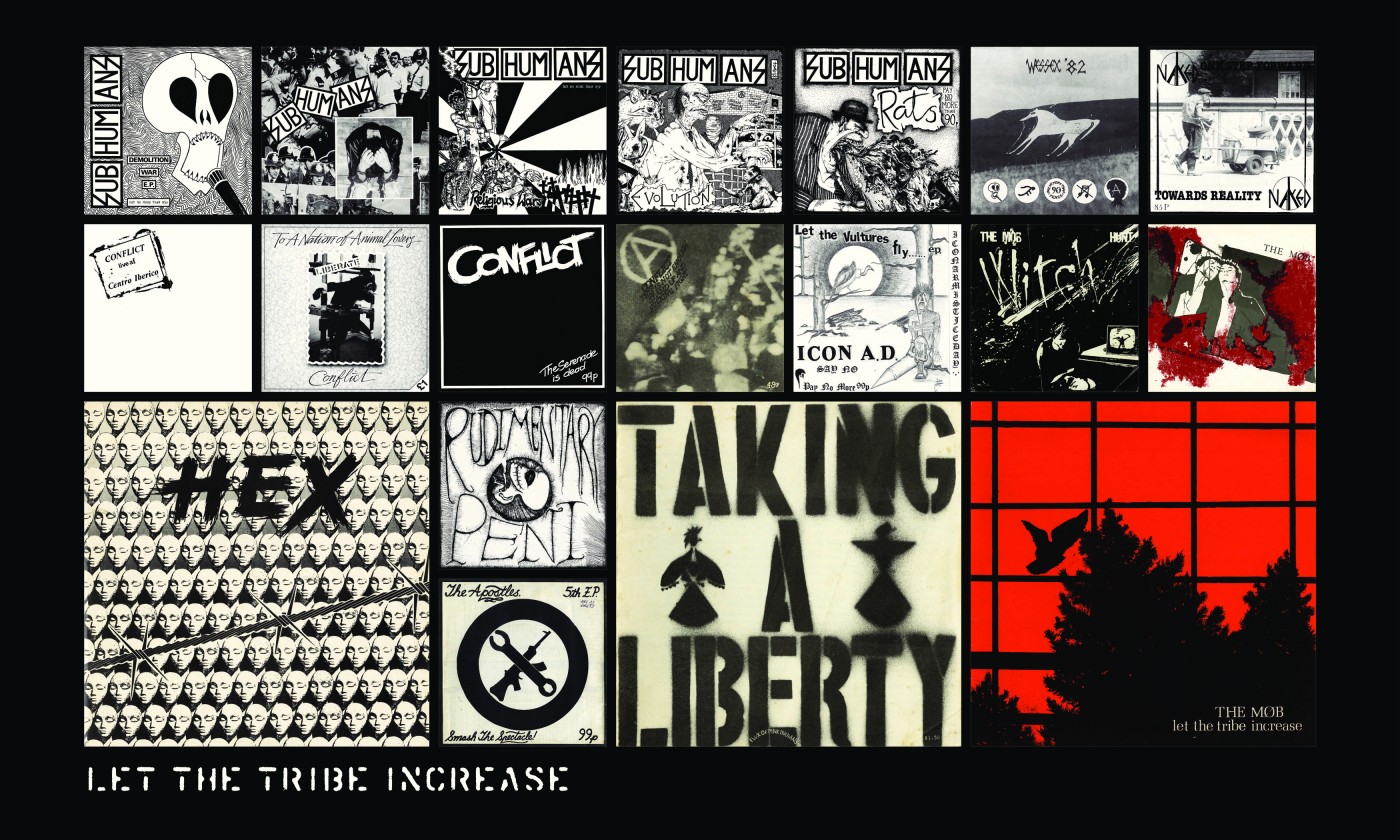
After me was Ana Raposo, who also presented an interesting paper on how politics are represented in anarcho-punk music graphics. The core of her paper investigated how content and stylistic devices of music packaging are utilised as a propaganda tool and used for specific purposes such as loyalty or allegiance to a scene, strengthening an existing scene or recruiting people into the scene. In doing so they also present a critique of contemporary realities or utopian environments. she drew on some interesting graphical examples to demonstrate these processes at work. In some respects it was a way of also articulating or putting an additional voice to some of the graphical content of Russ Bestley’s exhibition.
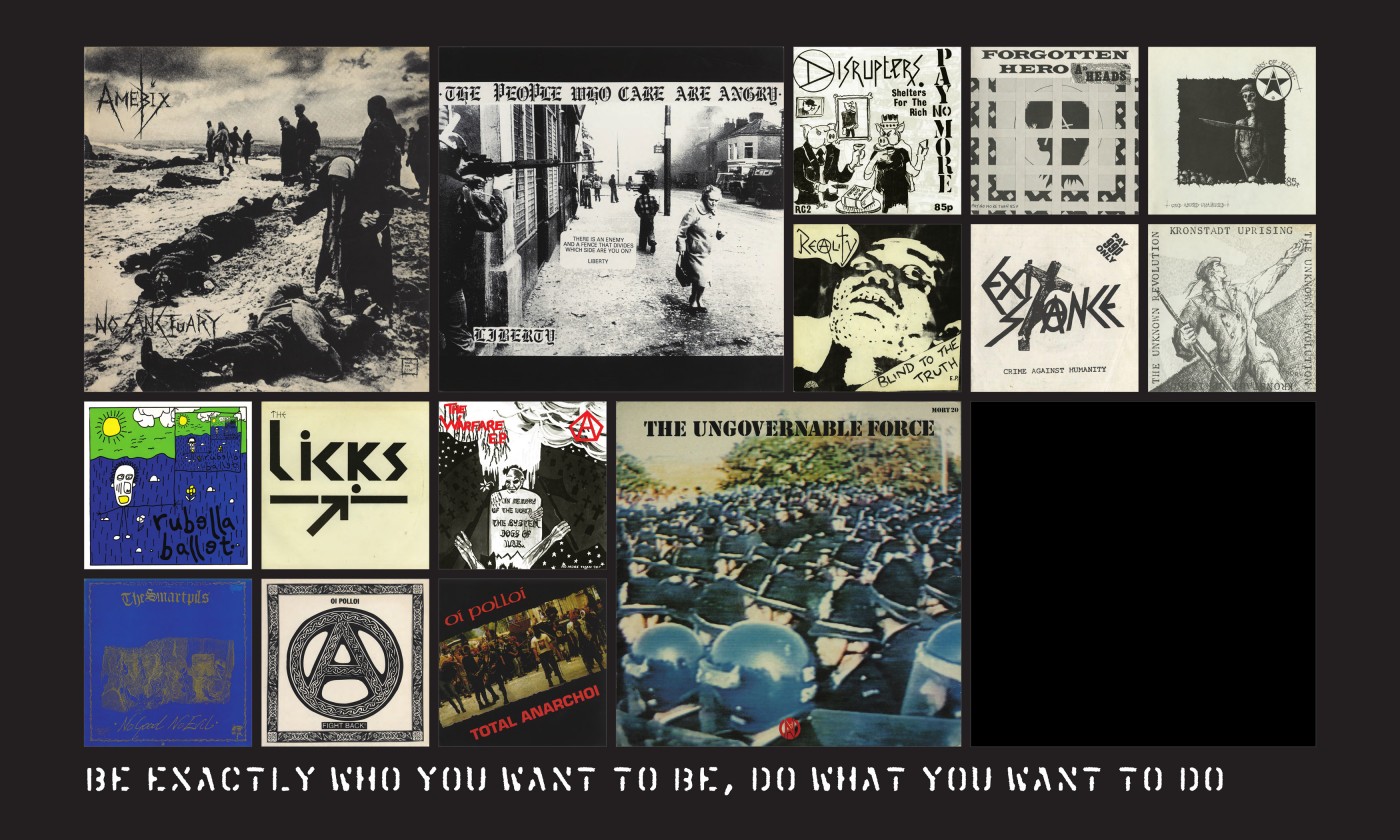
Last presentation of the day was from Pete Dale. He drew on the work of Ian Glasper’s series of books on underground UK punk, which provides an oral ‘history’ and a useful document of the politics of punk music and culture. In this insightful and at times amusing presentation Pete explored the notion of punk being about ‘more than music’ and pieces together some of the verbatim quotes of informants and contributors to Glasper’s books to paint a picture of the relationship between punk’s music and political affiliations and the way they changed over time. In doing so Pete pieced the quotations together to show how a clearer understanding of where punk amounted to ‘more than music’ and where it also failed to amount to such.
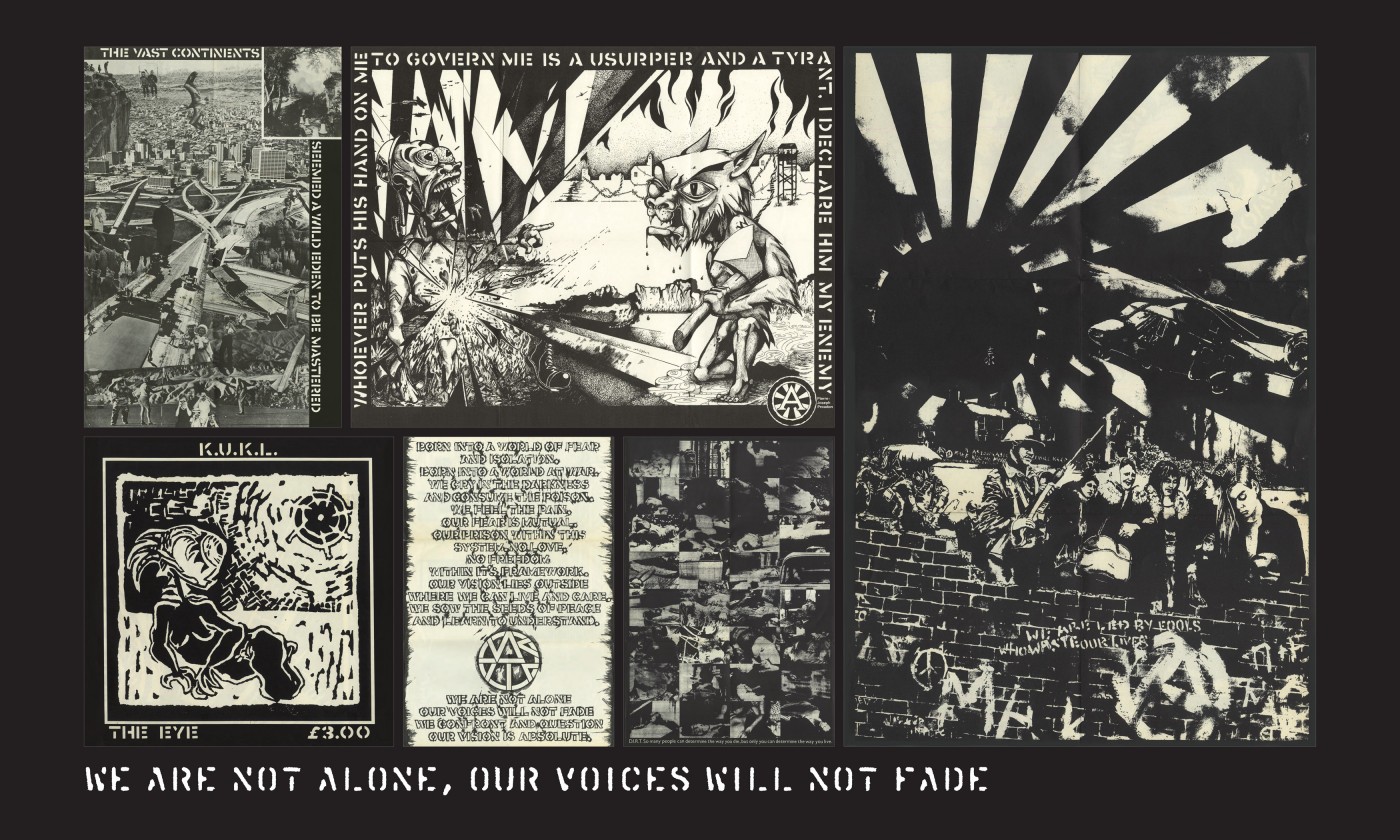
To end off a really stimulating day there was a round table discussion with Penny Rimbaud, George McKay and Sarah McHendry. (photo courtesy of Rich Cross ). I wont go into detail of the discussions as you can listen to them here (they were recorded on a mobile phone-not brilliant quality but the conversations are audible):
George McKay
Sarah McHendry
Penny Rimbaud
Here is also a link to Rich Cross’ presentation slides from the conference and will also take you to his excellent blog.
Here is also a link to some photos from the conference courtesy of Sean Clark and his blog post about the event
